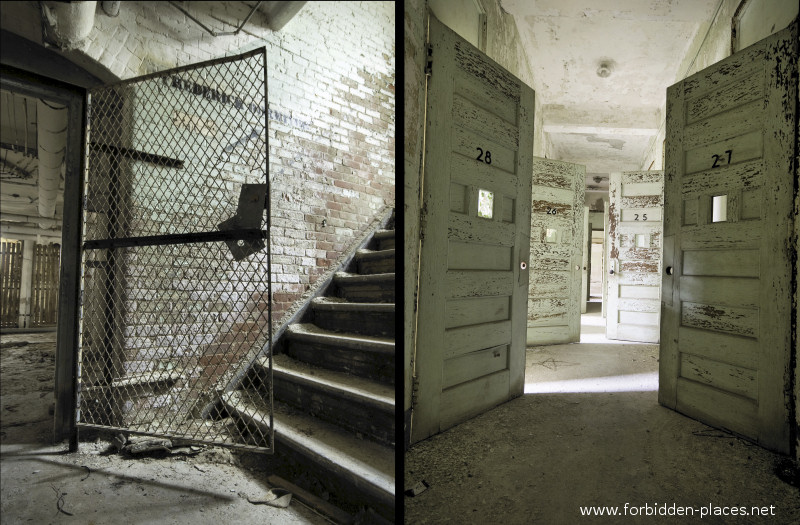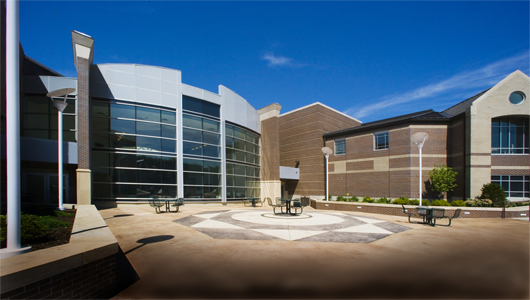There were but they're old and things change.
Strengths:
1) Psychological testing: the program will teach you how to use psychological testing. A doctor's ability to tell if one is lying is no better than a layman, a point Phil Resnick hammers into his residents each year. If you go on the stand and testify, you better have something more than just mere clinical opinion.
Several tests exist that could help in this regard such as a SIRS, TOMM, an M-FAST among several others. There are also plenty of other tests that could be useful such as the HCR-20 (for predicting future violence), the Static-99 (sex offender evaluation) among several others. Most programs that I'm aware of have no experience with psychological testing.
2) Good exposure to cases: what's the range of cases you'll see? E.g. disability, competency to stand trial, malpractice, not guilty by reason of insanity, mitigation cases, psychological autopsies, guardianship, fitness for duty, etc.
Some places will not let you have involvement in the major cases, others will.
3) The safety of the institution: Most forensic fellowships will have you work at a prison or forensic psychiatric facility that pretty much will be along the same lines or slightly better than this...
You need to figure what are the odds you'll be attacked working everyday in a facility like that?
4) Distance of the forensic institution from the fellowship: The two are not the same. Most fellowships are in the university, but the actual work is in the prison that is literally a 3-4 hour drive away. Many forensic fellowships require that you show up to both in the same day. During my interviews, I was told by several programs to expect to put 30K miles on my car that year from the fellowship alone. Some programs have an apartment set up for the fellows at the "other" location" so they could sleep at one place at the end of the day.
How prevalent is this issue? It was the overwhelming majority when I interviewed.
5) Training on writing: Forensic psychiatry requires extensive writing of reports and most M.D.s forgot how to do this and are more used to writing things to the effect of...
70 yo CM w/ HX of BPD with SI an HI.
On Li 450 QBID.
When writing a report, it has to be grammatically correct and understandable to a court. For example
Mr. Smith, a 70-year-old white man with a history of bipolar disorder was allegedly suicidal and homicidal during our evaluation. He is currently being treated with lithium, a medication for the treatment of bipolar disorder at 450 mg twice a day.
It takes months to relearn how to write. As my PD brought up, we were probably better writers in high school than we are after residency.
6) Teaching: This does not need explanation.
7) Training in giving expert opinion on the witness stand: Several programs give fellows little exposure to being in Court or mock trials. You want a program that gives you very good experience in this area.
8) Furthering your career in this field after you graduate: Some programs literally are using fellows to do the dirty work evaluations, have an attending sign them, and the attending pockets the money for the evaluation.
I've noticed that several aspects of this field are controlled by a pseudo-fraternity of judges, lawyers, and specific forensic psychiatrists. It's not an open field where someone could just set up shop as a forensic psychiatrist and expect cases to fall on their lap. Lawyers tend to continue to work with forensic psychiatrists where they've established a relationship, and it's easy to understand why. When on the stand, the psychiatrist and the lawyer need to work well together, just like in court-room dramas where the lawyer and the witness, just be facial expressions can tell what the other is thinking..
http://www.youtube.com/watch?v=V-TemfMIxrk&feature=related
start at 1:00
(Of course, you want to be working for an honest lawyer, not the smooth evil mafia one).
Will the program help you to get your foot into the door of the cigar-smoked filled room where the bigshots discuss the big cases of the local area?
9) Is the forensic psychiatrist honest? I've seen quite a few give completely bull$hit testimonies because they were paid enough. Well completely is not accurate but BS to the point where the judge and jury bought it and the psychiatrist carefully worded their statement so they would not be caught. I hate saying this but I know a PD in an namebrand institution that IMHO gave a completely BS testimony on a rape case, and when I asked him about it in a non-confrontational manner, he became red-faced and started screaming at me (I was a resident at the time). The specific question I asked was that given that the forensic psychiatrist had testing highly suggesting the defendant was malingering, and all this guy had was clinical opinion, and that clinical opinion is far more inaccurate than testing, why didn't he do psychological testing? The guy had to admit he didn't know how to do the tests (again a reason why you need to go to a program where they'll teach you this), and it was apparent his testimony was merely just a plausible story that fit the set of available facts but several other plausible stories could've fit. IMHO that was merely spinning the events and not a real explanation that met a scientific standard of any sort.
10) Will the program pay for you to attend AAPL and the board review course taught there?
11) All the other factors you'd expect from any program: the pay, do they treat residents well, what are the hours like?
I don't know how every single program is but I can tell you given what I do know here are the better ones...
U Mass: PD last I heard was Pinals who has a great rep. Several prominent forensic psychiatrists and psychologists work and teach there. One of the top forensic psychologists is there as well and it also has (or at least had) a forensic psychology program and the two programs worked hand in hand.
Case Western: Resnick resides here but so too does Steve Noffsinger, another top-notch forensic psychiatrist. Both advanced the field, both are great teachers, and the program is considered one of the best if not the best.
UC Davis: Charles Scott heads this program and he's now the current president of AAPL.
U of Cincinnati: Headed by Douglas Mossman, a Guttmacher award winner. He advanced the field of predicting future violence and literally wrote several of the guidelines used as the standard for AAPL.
I know for a fact that all of the above programs all teach psychological testing very well or at least have a PD that knows it because I've either seen it with my own eyes or read journal articles where the PD was the author and it involved psychological testing.



